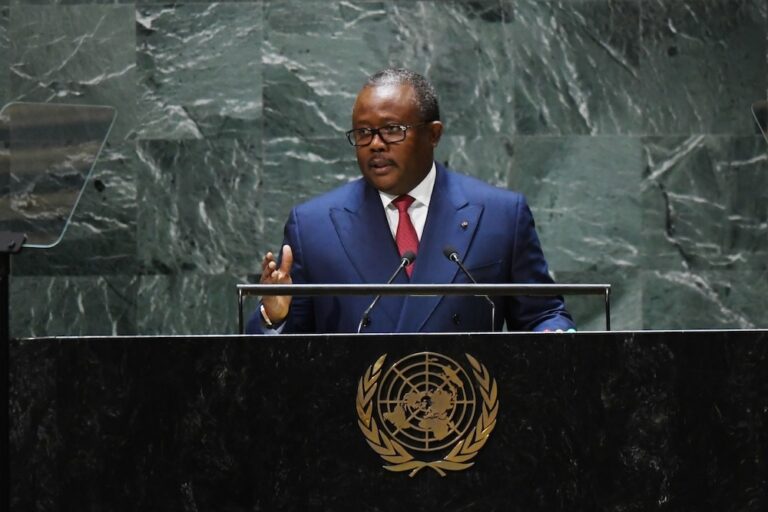(RSF/IFEX) – RSF has expressed its serious concern following the detention of Joao de Barros, publication director of the private daily “Correio de Bissau”. After his incarceration, the journalist announced that he was beginning a hunger strike. “This journalist is the victim of constant harassment from the authorities. He is either imprisoned or his newspaper […]
(RSF/IFEX) – RSF has expressed its serious concern following the detention of Joao de Barros, publication director of the private daily “Correio de Bissau”. After his incarceration, the journalist announced that he was beginning a hunger strike. “This journalist is the victim of constant harassment from the authorities. He is either imprisoned or his newspaper is closed each time he criticises the president or the government,” noted RSF Secretary-General Robert Ménard. The organisation sent a letter to President Kumba Yala, asking him to take the measures necessary to ensure the journalist’s immediate release. “To the best of our knowledge, Joao de Barros did nothing more than exercise his right to express himself freely. Nothing can justify his detention. It is a serious human rights violation,” Ménard added.
According to information collected by RSF, security officers arrested de Barros on 17 June 2002. He was immediately taken to Bissau’s central prison. The journalist announced the next day that he was beginning a hunger strike, which he planned to continue “until light is shed” on the case. He is accused of having criticised the head of state on the private radio station Radio Bombolom. The journalist had described a speech given by President Yala as “catastrophic.” During his address, Yala had accused the Gambian authorities of plotting a coup against him. According to de Barros, the coup rumours can be explained by the “wasting of public funds,” which are more often used to purchase officials’ “luxury automobiles” than to fight the extreme poverty of the population.
De Barros was released in the evening on 19 June, after being heard by an examining judge. He must appear in court every ten days. His lawyer confirmed that the journalist’s arrest was linked to his critical remarks on Radio Bombolom.
RSF recalls that de Barros was previously detained for 48 hours in June 2001, after publishing an article entitled “Kumba Yala and Corruption”. In October, the state prosecutor also ordered the closure of his newspaper, “Diario de Bissau” (see IFEX alerts of 16 and 5 November 2001). De Barros had subsequently decided to relaunch “Correio de Bissau”, which had closed five years earlier.


